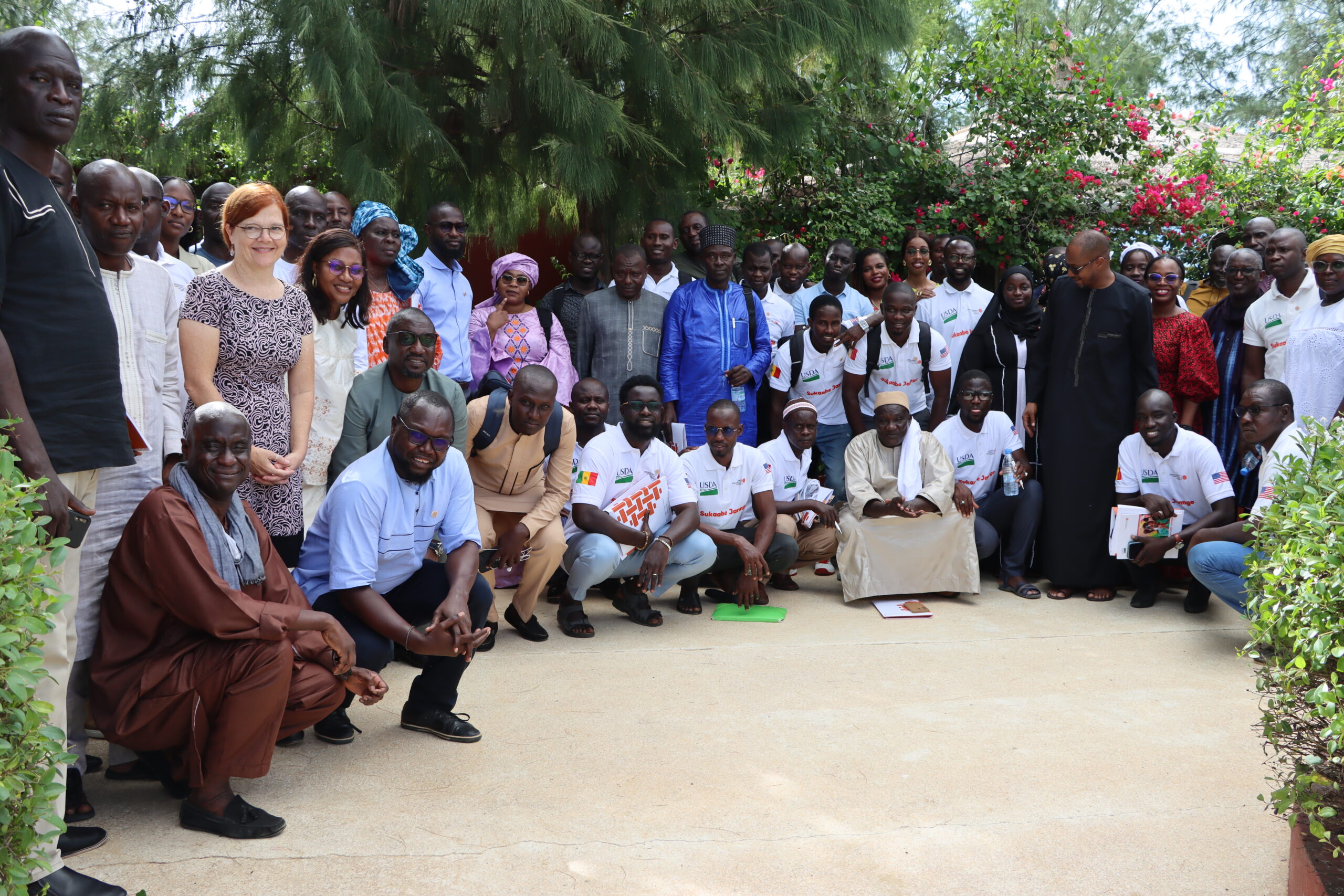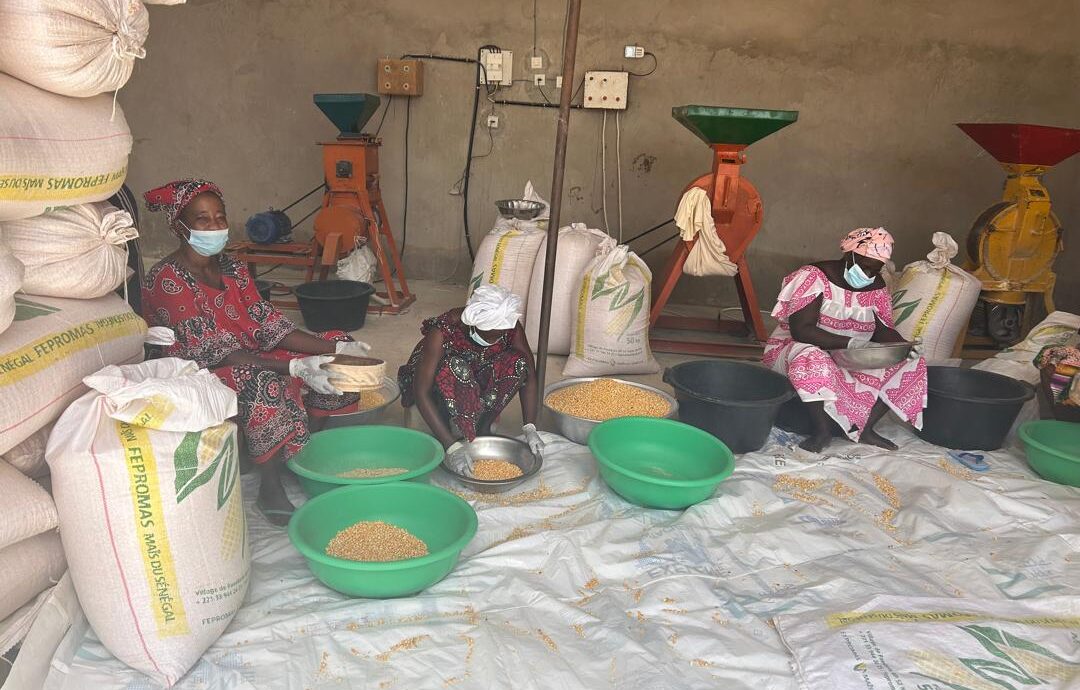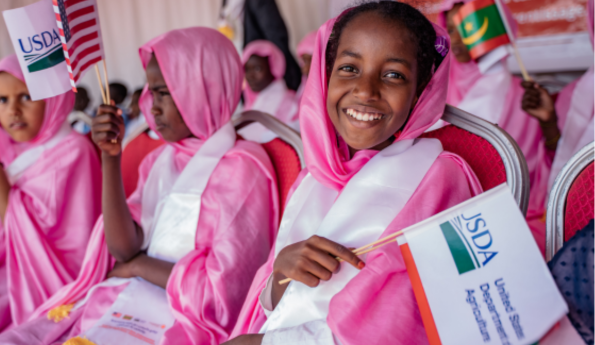From the outset, sustainability was at the core of the design and implementation of Sukaabe Janngo (Children of Tomorrow), Counterpart’s five-year USDA-funded McGovern-Dole International Food for Education and Child Nutrition project to ensure communities could continue activities beyond the end of USDA funding. The project’s closing workshop highlighted its results and attracted national, regional, and local stakeholders. In September 2018, the project launched with implementing partners Save the Children and Associates in Research and Education for Development. Over the years, it has worked with 270 schools to improve nutrition and learning outcomes, reaching 82,642 students, in addition to 13,700 other participants such as teachers, school directors, government officials, and pregnant women. Taking into consideration family members who indirectly benefited extends its reach to an additional 568,750.
Counterpart’s approach to sustainability involves comprehensive action plans, which are both a process and a set of tools that include governance, fundraising, communication, and parental mobilization, all focused on community-led school feeding. The user-friendly process is managed in a participatory manner by school management committees, who oversee the execution and evaluation of the Sustainability Action Plans. The project leveraged strong community involvement and the plans have proven to be flexible and adaptable to the realities of each school as it strives to maintain the canteen after the project’s departure.

The Sukaabe Janngo II closing workshop drew around 100 participants at the national level.
Counterpart and its partners supported the government of Senegal to identify opportunities for local agricultural producers to become more engaged with schools through formalized investments and market linkages, including high levels of community involvement which has been consistent throughout the life of project.
As part of the project’s transition, regional health authorities have taken over the program to supplement pregnant women with prenatal vitamins in partnership with Vitamin Angels. Regional educational authorities are continuing to use the pedagogical approach and tools that the project created to improve reading and writing, specifically The Writing Project created by Associates in Research and Education for Development.
Counterpart has worked with USDA, the government of Senegal, and Senegalese communities to implement numerous of school feeding programs since 2001. It will continue working in the Casamance region implementing Sukaabe Janngo II until 2026. Sukaabe Janngo II will adapt lessons learned from programming in St. Louis and will study the impact of USDA programming in the north through a planned impact evaluation.
Read more about Sukaabe Janngo II here.




